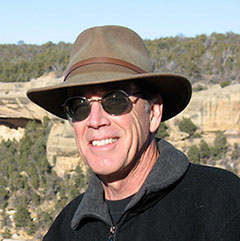Top 28 Quotes & Sayings by Will Hobbs
Explore popular quotes and sayings by an American author Will Hobbs.
Last updated on April 14, 2025.
I've been collecting articles on extremophile bacteria for at least the last ten years. I find them fascinating, whether they live in boiling pools at Yellowstone, around thermal vents at the floors of the oceans, or on Mars, where NASA has been searching for them as the first evidence of life beyond Earth.



















